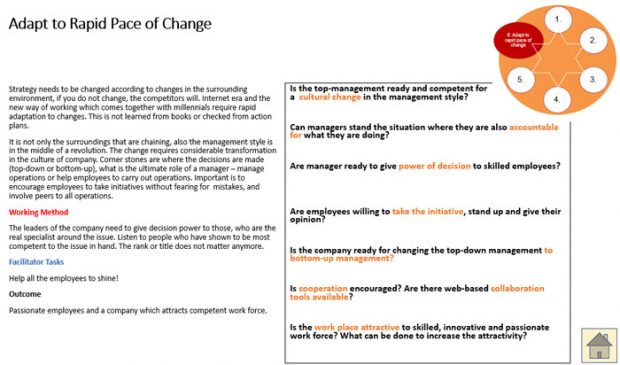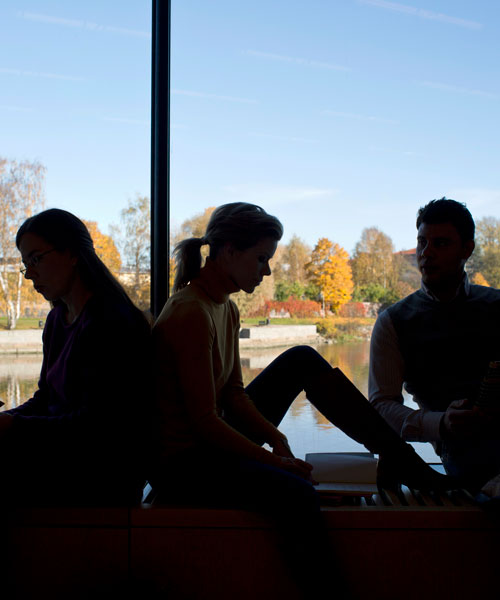Many small and mediums-sized IT companies are packed with young and innovative millennials. These IT nerds, in addition to developing state-of-the-art solutions, want to have a wider influence in their companies. My study of IT companies discovered that millennials do not want to be managed by someone telling them what to do or to be measured how the instructions are followed. Instead, it is important to them to actively participate in the running of the daily operations. Therefore, it is important for a modern IT company to find out how to successfully run a company, in the demanding competitive environment, with modern management methods.
The millennials know that a modern SME (small and medium-sized enterprise) IT company cannot rely on the management methods developed almost a hundred years ago. In their view, it is time to challenge the traditional approach and methods of strategy, which are often developed for large enterprises, not to SMEs.
The millennial era gives power to employees and widens accountability not only to employees but also to leaders of the company. The stiff, conventional top-down management is turned upside-down into the bottom-up management, where decisions are made fast and by the real-life experts, and where cooperation is of utmost value. As the way people work is changing, the modern leadership turns managers into stewards whose main responsibility is to assist their employees to shine. This also leads to considerable changes in the companies’ culture.

The illustration shows a page from the ‘Strategy Implementation Handbook’. This Master’s Thesis has gained excellent reviews and is available in theseus.fi (https://www.theseus.fi/handle/10024/147192). Topic: A Generic Strategy Implementation Handbook for Small to Medium Sized IT companies.
The key assets of an SME IT company are the competent and empowered employees. Those who innovate on a daily bases. As the resources of skilled, creative and passionate employees are scarce, leaders are faced with a challenge to win their brains and souls. In this situation, companies have to turn themselves into attractive modern employers and differentiate them from masses by up-to-date ways of leading their business. In nerds’ eyes, it can be done – first and foremost – by empowering those who are the real experts, and by turning error-free operations into error-allowed operations. With the help of new era millennials, highly engaged and committed companies are able to move fast, be agile in operations, and ready to turn the ship whenever needed.
Even though there are thousands of strategy books available, still, studies reveal that nine out of ten employees do not understand their company’s strategy. Having worked for many years in IT industry, in leadership and management positions, I have always missed a handy and practical strategy implementation tool. My Master’s studies at Metropolia gave me this opportunity to explore and eventually develop such a tool and put it into a ‘Strategy implementation handbook’.
In my study, I was helped and inspired by innovative and enthusiastic C- and O-level employees (i.e. from C-‘executive’ and O-‘operational’ levels) who shared their insights and helped to develop this handbook, specifically fit for use by IT SMEs. The Handbook consists of six concrete and easy-to-follow chapters how to implement a strategy in an IT company. I especially relied on some brilliant ideas of modern leadership from Red Hat Inc., one of the leading IT developing companies, and from the Open Organization community. I am grateful for their input.
This Master’s Thesis is available in theseus.fi. Topic: A Generic Strategy Implementation Handbook for Small to Medium Sized IT companies.
Researcher Kirsi Hoikkala (LinkedIn), Master of Engineering in Industrial Management
Master’s project discovery: Conventional Management Methods are Challenged
Master’s thesis often brings unexpected insights to both the thesis worker and their community of co-workers, and to the interested public. This year, Master of Engineering Kirsi Hoikkala, who has completed her Master’s degree in Industrial Management, came up with a discovery challenging the renowned management gurus. In her Master’s project, Kirsi explored how strategy is implemented in small and medium-sized innovative IT companies. And her study revealed some unexpected results.
Master’s process instructor Zinaida Grabovskaia, PhL









Ei kommentteja